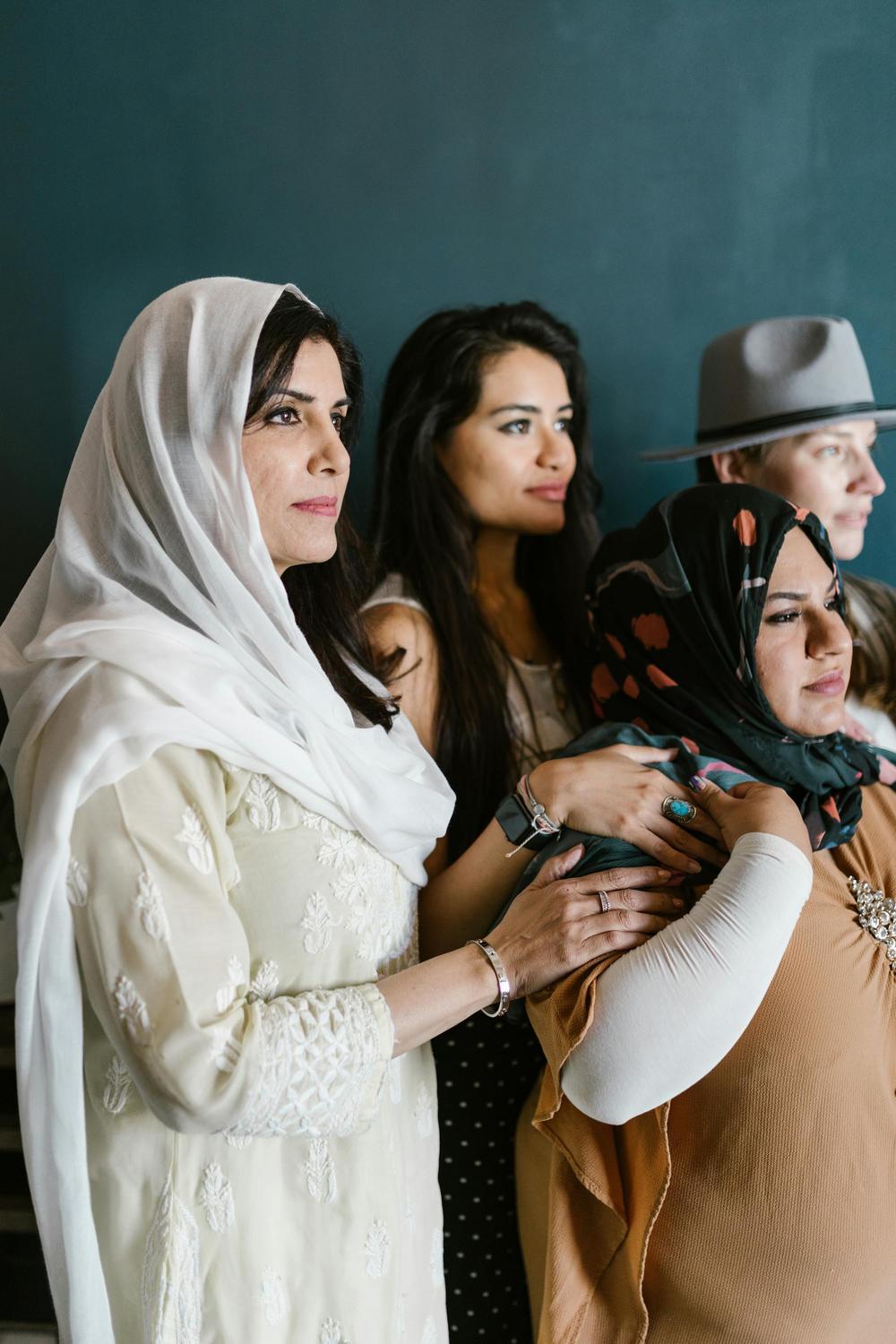In the vibrant multicultural tapestry of Brisbane, families from culturally and linguistically diverse (CALD) backgrounds face unique challenges when navigating disability support services. Behind the statistics lies a deeply personal reality: countless families struggling to access appropriate care while preserving their cultural identity and dignity. The stark reality that only 9.3% of National Disability Insurance Scheme (NDIS) participants come from CALD backgrounds—when research suggests this figure should be closer to 29%—reveals a profound gap in our support systems that leaves thousands of Australians without the assistance they desperately need.
For families who have journeyed across oceans seeking better lives, the complexity of Australia’s disability service landscape can feel overwhelming. Language barriers intertwine with cultural stigma, unfamiliar bureaucratic processes, and deep-seated concerns about maintaining cultural practices within support frameworks. Yet within Brisbane’s diverse communities, hope emerges through dedicated organisations, innovative programs, and passionate advocates working tirelessly to bridge these gaps and ensure every person receives culturally appropriate, dignified care.
What Cultural Support Services Are Available for CALD Communities with Disabilities in Brisbane?
Brisbane’s landscape of cultural support services encompasses a diverse ecosystem of specialised organisations and mainstream providers who have embraced cultural competence as a fundamental principle of care delivery. The city’s multicultural demographics—with the Brisbane South Primary Health Network region alone hosting over 1.2 million people, including 31% born overseas and 20% from non-English speaking countries—necessitates sophisticated service approaches that extend far beyond traditional disability support models.
At the forefront stands AMPARO Advocacy, Queensland’s only organisation exclusively dedicated to protecting the rights and wellbeing of vulnerable CALD Queenslanders with disabilities. Operating since 2004, AMPARO provides independent individual and systemic advocacy, addressing serious issues of social and economic isolation, unfair treatment, and discrimination faced by CALD community members who are often least able to defend their own rights. Their intensive support approach extends beyond traditional advocacy to include comprehensive NDIS access assistance, working in Brisbane, Logan, and Strathpine areas to help CALD community members effectively navigate the scheme’s complexities.
Carers Queensland operates their “Embracing Disability in Multicultural Communities” project with particular strength in Brisbane South areas, emphasising community connection and stigma reduction through trusted relationships with key stakeholders in multicultural communities. Their North Lakes office exemplifies innovative service delivery with seven bilingual team members providing services in languages including Samoan, Mandarin, French, Spanish, Auslan, and Bengali, enabling participants to access support in their native languages and creating safer, more supportive service experiences.
Organisations like Co.As.It. Community Services bring four decades of experience in serving culturally and linguistically diverse communities, coordinating with family members and assigning care workers who understand clients’ preferences, religious beliefs, special celebrations, and regional culinary requirements. Their Cultural Italian Activity Opportunity (CIAO) program specifically caters to Italian residents, providing valuable links between Italian residents in care and the wider community through distinctly Italian cultural activities and social connections.
| Service Type | Key Providers | Languages Supported | Specialisation Areas |
|---|---|---|---|
| Advocacy Services | AMPARO Advocacy | Multi-lingual interpreters | Individual & systemic advocacy |
| Community Support | Carers Queensland | Samoan, Mandarin, French, Spanish, Auslan, Bengali | Multicultural community connection |
| Cultural Programs | Co.As.It. Community Services | Italian, English | Cultural activities & care coordination |
| Disability Support | Various NDIS Providers | 157+ languages across Brisbane | Culturally competent care delivery |
How Do Cultural Competence Models Enhance Disability Care for CALD Communities?
Cultural competence in disability service delivery represents a comprehensive transformation that extends far beyond basic cultural awareness to encompass fundamental changes in organisational culture, staff capabilities, and service design principles. Research demonstrates that culturally competent care improves participant engagement metrics by 74% and reduces service disparities by 27% in CALD communities, creating compelling evidence for systematic cultural competence implementation across Brisbane’s disability service sector.
The concept of cultural safety has evolved from cultural awareness toward systemic change that ensures CALD participants experience care environments as spiritually, socially, and emotionally secure. This paradigm shift requires dismantling institutional barriers and co-designing services that genuinely reflect participant needs and preferences rather than attempting to fit diverse communities into standardised service frameworks. Cultural safety implementation involves continuous evaluation of organisational practices, policies, and procedures to identify and eliminate discriminatory elements while creating environments where CALD participants feel valued, respected, and genuinely understood.
Environmental adaptations supporting cultural diversity extend beyond multilingual signage to encompass spatial arrangements that respect cultural norms and practices. Successful providers create sacred spaces for spiritual practices, gender-segregated common areas accommodating religious requirements, and flexible meal systems providing culturally appropriate nutrition including halal options and traditional foods. These environmental modifications demonstrate respect for cultural practices while creating service environments that feel welcoming and appropriate for diverse communities.
Service structure adaptations prove equally vital in achieving cultural competence, with traditional service delivery models frequently conflicting with cultural obligations and family patterns characteristic of many CALD communities. Research demonstrates that 42% of Muslim participants missed appointments during Ramadan in pre-adapted systems, highlighting the importance of cultural accommodation modules that enable evening and weekend services, mobile outreach eliminating transportation barriers, and family-centric planning sessions. These structural adaptations recognise that therapeutic effectiveness depends more on cultural continuity than clinical intensity, with participants reporting 83% higher satisfaction when disability services incorporate traditional practices and cultural considerations.
What Barriers Do CALD Families Face When Accessing Disability Services in Brisbane?
The barriers confronting CALD communities with disabilities in Brisbane represent complex, interconnected challenges that extend far beyond simple language accessibility issues to encompass systemic disadvantages rooted in cultural misunderstandings, institutional limitations, and community-level stigma. These challenges create multiple layers of disadvantage that compound the difficulties already associated with disability support navigation in Australian service systems.
Cultural stigma surrounding disability represents a fundamental barrier that prevents many CALD families from acknowledging disability experiences or seeking appropriate support services. Community conversations conducted with African communities in Brisbane reveal that families often face significant challenges within their ethnic communities when discussing disability, with cultural beliefs sometimes attributing disability to spiritual or family failings. These stigma patterns create isolation for families who may already be navigating settlement challenges, language barriers, and economic disadvantage, compounding the difficulties associated with accessing appropriate disability services.
The intersection of refugee trauma and disability creates particularly complex barrier patterns for many CALD community members in Brisbane. Organisations like the Queensland Program of Assistance to Survivors of Torture and Trauma (QPASTT) work specifically with people from refugee backgrounds who have sought safety from persecution, torture, and war-related trauma. For these communities, disability may compound existing trauma experiences while traditional healing approaches and cultural understandings of mental health may conflict with Western disability service models, creating additional complexity in service engagement and effectiveness.
Systemic barriers within the NDIS itself create ongoing challenges for CALD participation, with research consistently demonstrating that the scheme’s design assumptions and operational approaches favour participants from English-speaking, culturally mainstream backgrounds. These systemic limitations include planning processes that may not accommodate cultural decision-making patterns involving extended family networks, assessment approaches that may not capture culturally specific support needs, and service delivery models that prioritise individual autonomy over collective family approaches common in many CALD cultures.
Economic disadvantage compounds accessibility challenges for many CALD families, particularly those from refugee backgrounds who may be experiencing multiple disadvantage layers including limited employment opportunities, housing instability, and social isolation. These economic constraints affect transportation access, limiting ability to attend appointments or access services, while also creating pressure to prioritise immediate survival needs over longer-term disability support planning.
How Are Government Strategies Improving Cultural Support Services for CALD Communities?
The policy framework governing cultural support services for CALD communities with disabilities in Brisbane operates within a comprehensive national and state structure designed to promote equitable access and culturally responsive service delivery. The National Disability Insurance Scheme (NDIS) Cultural and Linguistic Diversity (CALD) Strategy 2024-2028 represents the most significant recent policy development, co-designed with over 800 people from CALD communities and incorporating six key priorities with 28 specific actions to support CALD communities in better accessing and using the NDIS.
The NDIS CALD Strategy prioritises communication improvements through broad community-focused education campaigns about the NDIS, its purpose, and access procedures, recognising that fundamental awareness gaps persist within many CALD communities. The strategy acknowledges substantial work remains necessary to raise community conversations about disability to address stigma and shame that prevent many CALD families from seeking appropriate support. Implementation approaches emphasise bi-cultural staff engagement and collaboration with ethnic community leaders to provide information about disability and the NDIS, recognising that refugee communities particularly rely on trusted sources within their ethnic communities rather than formal service engagement.
Queensland’s state-level policy framework provides additional support through the Department of Child Safety, Seniors and Disability Services, which in September 2023 funded AMPARO Advocacy as a Peak and Representative body for people from CALD backgrounds with disability. This funding recognition establishes AMPARO within the Queensland Disability Peak and Representative Body Program, acknowledging the specialised expertise required to effectively advocate for CALD communities with disabilities at systemic levels.
The policy framework recognises that market-based approaches driven by consumer choice present particular challenges for CALD communities who may lack understanding of their rights as consumers alongside the additional complexities of language and cultural understandings of disability services. Policy responses include recommendations for service delivery protections, such as prohibiting providers from delivering all supports for individual NDIS participants, ensuring additional safeguards for participants at risk of poor or negligent service provision.
Language accessibility represents a critical policy priority, with the NDIS CALD Strategy responding to diversity within Australia’s CALD population, particularly ethnic groups with lower literacy and digital skills levels. Policy implementation includes expanded translation of materials into multiple languages and emphasis on visual rather than written formats, responding to consistent community requests for more accessible information presentation.
What Community Programs Are Building Disability Awareness in CALD Communities?
Community awareness and education programs represent critical components of effective cultural support service delivery, addressing fundamental knowledge gaps about disability services while working to reduce stigma and cultural barriers that prevent CALD community members from accessing appropriate support. These programs recognise that individual service delivery cannot be effective without broader community understanding and support for disability inclusion within CALD communities.
Carers Queensland’s “Embracing Disability in Multicultural Communities” project exemplifies comprehensive community awareness approaches that prioritise community-led storytelling and peer support as mechanisms for reducing disability stigma. The project brings multicultural communities together to share stories of people and families living well with disability, creating safe spaces for families with disabilities to connect and share personal experiences while gathering information to develop culturally appropriate resources. This approach recognises that authentic community change requires voices from within communities rather than external expert-driven information provision.
The project’s video resource featuring three mothers from Somalia and South Sudan who have children with disabilities demonstrates the power of authentic community storytelling in changing attitudes and reducing stigma. These mothers speak openly about challenges they faced within their African communities while explaining why it’s important for others to speak out and share their truth, creating powerful role models for community members facing similar challenges. The four-minute film serves multiple purposes including community education, stigma reduction, and empowerment of families currently navigating disability support systems.
Community education programs address multiple knowledge gaps including basic understanding of the NDIS, types of support available, eligibility criteria, and application processes. However, effective programs extend beyond information provision to include cultural and linguistic needs education, helping community members understand how disability services can be adapted to meet their specific cultural requirements. This comprehensive approach recognises that awareness of service existence is insufficient without understanding how services can be accessed in culturally appropriate ways.
The role of family and community networks in supporting CALD individuals with disabilities accessing NDIS services requires specific educational focus, including information on how family members can assist with application processes, provide emotional support, and advocate effectively for their family members’ needs. This family-centred education approach acknowledges that individual service access often depends on family understanding and support, requiring educational strategies that build capacity across family networks rather than focusing solely on individuals with disabilities.
Conclusion: Building a More Inclusive Future for CALD Communities with Disabilities
The journey toward truly inclusive cultural support services for CALD communities with disabilities in Brisbane reflects both remarkable progress and persistent challenges that demand continued innovation and commitment. The establishment of specialised organisations like AMPARO Advocacy, the development of culturally competent mainstream providers, and the implementation of comprehensive policy frameworks including the NDIS CALD Strategy 2024-2028 demonstrate substantial strides toward equity and inclusion. Yet the sobering reality that CALD participation in the NDIS remains significantly below expected levels reminds us that systemic transformation requires sustained, coordinated effort across all levels of service delivery.
The evidence overwhelmingly demonstrates that cultural competence is not merely an ethical imperative but a practical necessity that dramatically improves service outcomes and participant satisfaction. When disability services embrace cultural safety principles and adapt their approaches to honour diverse cultural practices, families experience profound improvements in engagement, trust, and therapeutic outcomes. This transformation extends beyond individual service interactions to encompass community healing, stigma reduction, and the creation of supportive environments where families feel valued and understood.
Brisbane’s diverse landscape of service providers, from specialised advocacy organisations to innovative community programs, creates a foundation for comprehensive support coverage that can meet the complex needs of CALD communities. However, achieving true equity requires addressing persistent market gaps including language accessibility, geographic service distribution, and family-centred service delivery models that align with cultural preferences. The successful implementation of emerging policy frameworks will depend on coordinated efforts that translate good intentions into tangible service improvements and meaningful increases in CALD community participation.
The future of cultural support services in Brisbane lies in recognising that diversity is not a challenge to be managed but a strength to be celebrated and leveraged. Community-led initiatives, peer support programs, and innovative service delivery models that integrate traditional practices with evidence-based care represent promising directions that honour cultural authenticity while achieving therapeutic excellence. As Brisbane continues to grow as a multicultural city, the commitment to cultural competence and inclusive service delivery will determine whether all residents can access the support they need to live with dignity, independence, and hope.
What makes a disability service provider culturally competent for CALD communities in Brisbane?
A culturally competent provider demonstrates comprehensive cultural safety by employing staff who understand diverse cultural beliefs, adapting environments to respect religious and cultural practices, offering multilingual services, utilizing cultural brokers, and designing services that integrate traditional family support systems with evidence-based care.
How can CALD families overcome barriers when applying for NDIS support in Brisbane?
CALD families can overcome these barriers by connecting with specialised advocacy organisations like AMPARO Advocacy, utilising community connector programs, engaging with culturally competent service providers, and accessing education programs that provide information in native languages and culturally appropriate formats.
What types of cultural accommodations should CALD families expect from disability services in Brisbane?
They should expect interpreter services or multilingual staff, flexible scheduling to accommodate religious observances, culturally appropriate food options, environments that respect modesty and gender needs, family-centred planning that involves extended family, and integration of traditional healing practices where appropriate.
Which organisations in Brisbane specialise in supporting CALD communities with disabilities?
Key organisations include AMPARO Advocacy, Carers Queensland with its multicultural projects, Co.As.It. Community Services offering culturally specific programs, and various NDIS providers that have developed cultural competence in service delivery. The National Ethnic Disability Alliance (NEDA) is also a valuable resource.
How do community education programs help reduce disability stigma in CALD communities?
Community education programs reduce stigma by facilitating authentic storytelling from community members, creating peer support networks, sharing culturally and linguistically appropriate information, engaging community and religious leaders, and celebrating success stories of disability inclusion.



